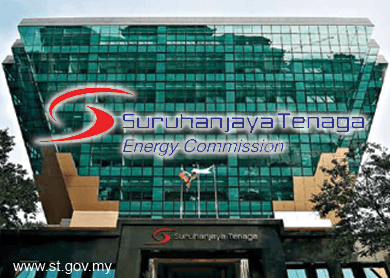
THE Energy Commission (EC) has rejected an initial tariff proposal submitted by Tenaga Nasional Bhd and SIPP Energy Sdn Bhd for Project 4A, a 1,440mw combined cycle gas turbine (CCGT) power plant project, for being too high.
Consequently, the partnership had to revise downwards the tariff by 8.6% to around 36.7 sen per kilowatt-hour (kWh), say industry sources.
 “We (Tenaga-SIPP) have resubmitted a lower tariff. We have trimmed some things, under instructions from the EC. However, the internal rate of return of the project on the revised tariff is still in line with our internal targets,” a Tenaga spokesman tells The Edge, when asked about the change in tariff.
“We (Tenaga-SIPP) have resubmitted a lower tariff. We have trimmed some things, under instructions from the EC. However, the internal rate of return of the project on the revised tariff is still in line with our internal targets,” a Tenaga spokesman tells The Edge, when asked about the change in tariff.
The spokesman would not confirm the quantum of the revised tariff and declined to comment further when asked what aspects of the project had to be “trimmed”.
The revised bid was submitted about two weeks ago and the EC is expected to make a decision in over the next week or so.
To recap, Tenaga (fundamental: 1.3; valuation: 1.8) and Sultan of Johor-controlled SIPP Energy had reportedly submitted a proposed tariff of 39.2 sen per kWh, roughly 4.5 sen per kWh or 13% higher than the reference rate — the tariff for Tenaga’s Prai power project.
For perspective, the 4.5 sen per kWh difference works out to about RM453 million annually and over RM11 billion over the life of the concession, based on back-of-envelope calculations (see table above).
“The tariff for Project 4A should be slightly higher than that of Prai because of changes in forex (foreign exchange) and interest rates, which have driven costs up. However, it is definitely not enough to justify a tariff of 39.2 sen per kWh,” notes an industry executive with knowledge of the matter.
“It is good that the EC rejected their (Tenaga-SIPP’s) first tariff (39.19 sen per kWh) and forced them to lower it. It restores some confidence in the EC. It shows that even with a direct award, the EC isn’t accepting just any price.
“Nonetheless, a direct award is still less transparent than a competitive bid. Hence, the EC should disclose more information with regard to Project 4A, to show the public that Tenaga and SIPP are not getting exceptionally high returns on the project.”
Even at the revised tariff of 36.7 sen per kWh, the two-sen difference from Prai’s tariff works out to about RM200 million over the life of the concession.
In comparison, the ringgit has depreciated against the US dollar by 17.4% to around 3.64 from an average of 3.1 when Prai was awarded back in 2012. During the same period, 10-year AAA-rated corporate bond yields have risen from 4.33% to 4.55%. It is worth noting that only a portion of the power plant’s cost was in foreign currency as most of the civil works were done locally.
It remains to be seen if the EC will accept the revised proposal. However, the EC is also under pressure not to delay or cancel Project 4A.
After all, the rationale for awarding Project 4A on a direct basis was to ensure it would be fast-tracked in the light of an anticipated shortfall in electricity generation capacity around 2018. A competitive tender would have added about one year to the project’s deadline.
However, to ensure that the project’s pricing is competitive, the EC used Prai’s tariff as a benchmark as a condition of the project. Recall that the EC last year awarded on a direct basis the 1,100-1,400MW CCGT project to SIPP Energy, along with partners Tenaga and YTL Power International Bhd.
Interestingly, YTL Power had then withdrawn from Project 4A, leaving Tenaga and SIPP to complete it.
Since then, the equity structure between Tenaga and SIPP has been a point of contention, say industry sources. While nothing has been announced yet, it is understood that the equity structure would be relatively equal for both parties.
As the project was awarded to SIPP, and not Tenaga, it is learnt that the former is demanding a relatively bigger stake, possibly more than 50%.
Nonetheless, most of the technical work will be done by Tenaga as it has the resources and experience.
SIPP is 51%-controlled by Sultan of Johor Sultan Ibrahim Sultan Iskandar. Daing A Malek Daing A Rahaman and Anuar Ahmed equally control the remaining 49% of the company.
On a separate note, it is learnt that Tenaga-SIPP has opted to maximise the specifications of the award, going for a 1,440mw CCGT configuration and getting GE as the equipment supplier for the gas turbines.
“Even though the project was awarded on a direct basis, Tenaga-SIPP conducted a competitive bid to identify the best EPC (engineering, procurement and construction) contractor for the project. On this basis, they have selected GE. However, all the EPC bids have been given to the EC for them to evaluate their (Tenaga-SIPP) proposal,” says one industry executive.
Note: The Edge Research’s fundamental score reflects a company’s profitability and balance sheet strength, calculated based on historical numbers. The valuation score determines if a stock is attractively valued or not, also based on historical numbers. A score of 3 suggests strong fundamentals and attractive valuations. Visit www.theedgemarkets.com for more details on a company’s financial dashboard.
This article first appeared in The Edge Malaysia Weekly, on June 1 - 7, 2015.
Save by subscribing to us for your print and/or digital copy.
P/S: The Edge is also available on Apple's AppStore and Androids' Google Play.